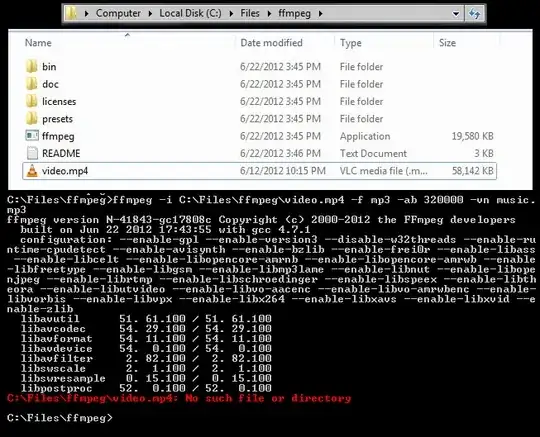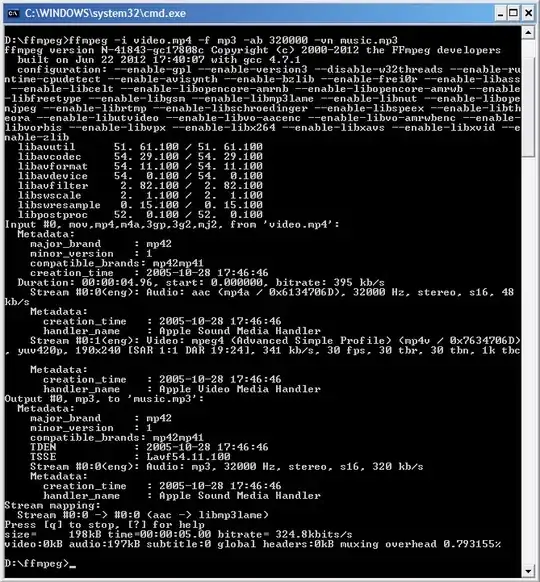I am attempting to use FFmpeg to extract audio from a mp4 and I keep running into this error:
CFileffmpegvideo.mp4: No such file or directory exist.
I am in command prompt (in Windows 7) and have the path as C:\Files\ffmpeg (Where ffmpeg is).
I run this command line
ffmpeg -i C:\Files\ffmpeg\video.mp4 -f mp3 -ab 320000 -vn music.mp3
The file is in the same folder as ffmpeg. I know I am missing something simple here but what is it?
Here is a short video showing the exact process.

